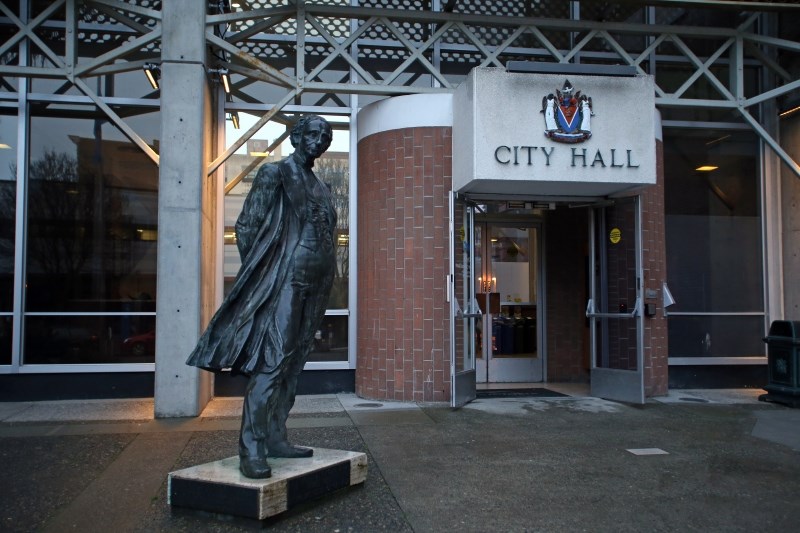Victoria homeowners dodged a bullet Thursday as city councillors narrowly voted down a proposal that would have almost doubled their property-tax increase this year in order to give business owners a property-tax break.
Councillors had already set an overall tax increase of 2.23 per cent, which equates to a $50 increase on the average residential property assessed at $518,000, and $151 for a typical business assessed at $500,000.
But in a 5-4 vote, councillors voted down setting a tax rate (the rate that determines how taxes are divvied up between property classes) that would have seen residential taxes increase 4.1 per cent and business taxes increase by only 0.3 per cent. That would have translated into a $94 increase for the average residential property and a $20 increase for the average business property.
Calling it a “painful and gut-wrenching decision,” Mayor Lisa Helps said she supported shifting the tax increase to try to support local businesses.
An increase of $94 on the average house would have meant less than $10 a month for the average homeowner, Helps said.
“I hear from people living in Fairfield, I hear from people living in Oaklands, I hear from people who don’t live anywhere near downtown, but they’re concerned about the health of our downtown,” she said.
“So I think, for me, this is supportable for this year, recognizing that we’re hearing over and over and over from everybody that we’re all in this together and we’ve got to get our downtown turned around.”
Coun. Geoff Young noted that residential assessments are increasing faster than commercial assessments and that’s indicative of the tough times businesses are facing, especially in downtown Victoria.
“I do think that it is really important that we recognize the difficulties of our commercial, our retail and office sectors,” Young said.
But his position didn’t win majority support.
“There are businesses that suffer, but there are also a lot of businesses that are thriving,” Coun. Ben Isitt said. “I personally believe that the business community and the business ratepayers are in the best position to assume increases compared to a single-income earner in a residential household.”
Coun. Pam Madoff said businesses won’t survive if residents can’t afford to go downtown and shop.
And, she said, it’s not just city taxes that will hit homeowners, but increases from other agencies such as the Capital Regional District and the hospital district as well.
“[Residential property owners] have no way of dealing with that. They can’t write it off. They can’t restructure their business. They can’t figure out another way to live.”
Voting in favour of the tax break for businesses were Helps, Young, Chris Coleman and Margaret Lucas. Opposed were Madoff, Isitt, Charlayne Thornton-Joe, Marianne Alto and Jeremy Loveday.
Since 2012, council has been working to reduce the business share of property taxes to 48 per cent from 49.35 per cent. That was achieved last year.



